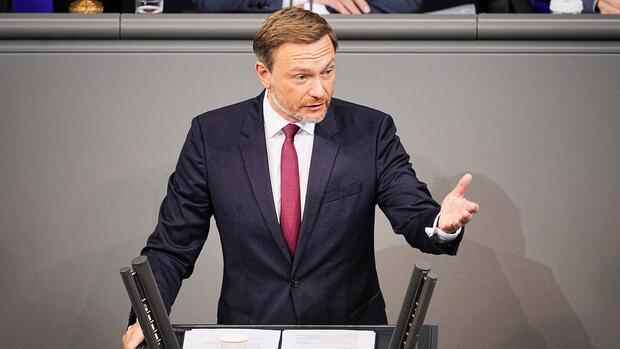However, Lindner cannot grant his colleagues in the cabinet any wishes that are too expensive. He therefore starts the budget negotiations with a reminder to be frugal. Budget Secretary Werner Gatzer conveyed this message to his colleagues from the other ministries at a meeting last week that marked the start of budget deliberations.
Gatzer made it unmistakably clear to the group of state secretaries: they can forget about big spending requests. Instead, the Federal Ministry of Finance ordered an austerity course. This emerges from Gatzer’s presentation, with which he described the budget situation to his colleagues and which is available to the Handelsblatt.
On March 8, the cabinet intends to adopt both the new draft for the current year’s budget and the key figures for the 2023 budget. Because of this double work and the tight schedule, “a very constructive cooperation and the highest discipline of all those involved” are required, warned Lindner’s budget expert.
Top jobs of the day
Find the best jobs now and
be notified by email.
The planning of the grand coalition from last summer is the basis for the 2022 budget. The planned net borrowing of almost 100 billion euros “forms the basis for the further procedure and is also to be understood as an upper limit in the respective budget estimates,” says the presentation.
Debt brake should come into effect again in 2023
In other words: Lindner definitely doesn’t want to incur more debt – and that’s why there is no more money for the individual departments. If the ministries also need funds for new projects, they have to make corresponding savings elsewhere in their budget. “Additional burdens are to be financed by appropriate counter-financing – for example by reallocating funds in the respective department or by increasing revenue, for example by reducing subsidies,” says the presentation of the Federal Ministry of Finance.
And the coming year won’t look any better. On the contrary: From 2023, the traffic light wants to comply with the debt brake again. That is why borrowing must be “drastically reduced,” emphasizes Gatzer in his message to his fellow state secretaries.
This is also how the “guidelines” for budgetary policy sound in the presentation. It was necessary “to put all expenditure to the test for the entire legislative period”. In order to finance the desired investments in the traffic light, “expenditure cuts must also be made and residual expenditure reduced”.
Should there be financial leeway, this would first have to be used to shoulder gaps in the budget or impending additional spending. In 2025, there will still be a budget gap of 6.2 billion euros that needs to be closed. In addition, there was a risk of higher spending, for example for existing international obligations that “pose great challenges” to the federal government.
In the presentation, the Federal Ministry of Finance concedes that the NATO quota and the spending quota for development aid in the financial plan will “decrease significantly” by 2025. According to the current plan, defense spending between 2021 and 2025 will drop from 1.49 to 1.27 percent of economic output.
Hard to meet international obligations
In 2014, the German government made an international commitment to achieve the two percent target set by NATO countries within ten years. According to current planning, the so-called ODA quota will also drop from 0.72 to 0.53 percent. This indicates the share of public expenditure on development cooperation in gross national income.
If the federal government wanted to increase the quotas by just 0.1 percentage points, this would require “annual additional expenditure of around four billion euros each,” the presentation says. How little leeway there is in the budget is also shown by the fact that the Federal Ministry of Finance does not want to make any provisions for the next wage and salary round in 2023.
Gatzer did instill some confidence in his colleagues. The financial situation has improved significantly as a result of the new tax estimate. But then the next warning followed: The traffic light coalition should not celebrate the scope right at the beginning of the election period.
It is questionable whether this will succeed. According to government representatives, there are already signs that some ministries will go into further budget negotiations with demands for significantly more funds. FDP-led departments such as the education and research ministries or the transport and digital ministries also have expensive projects to implement.
However, there could be agreement on a savings target: The Federal Ministry of Finance warned the other departments to put all financial payments to the federal states to the test. The reason for this: Even in the Corona crisis year 2021, the new debt of the federal states was kept within limits. According to Gatzers, some federal states even achieved a surplus, while the federal government had to take on record debt of around 215 billion euros.
More: The comeback of creeping tax increases
